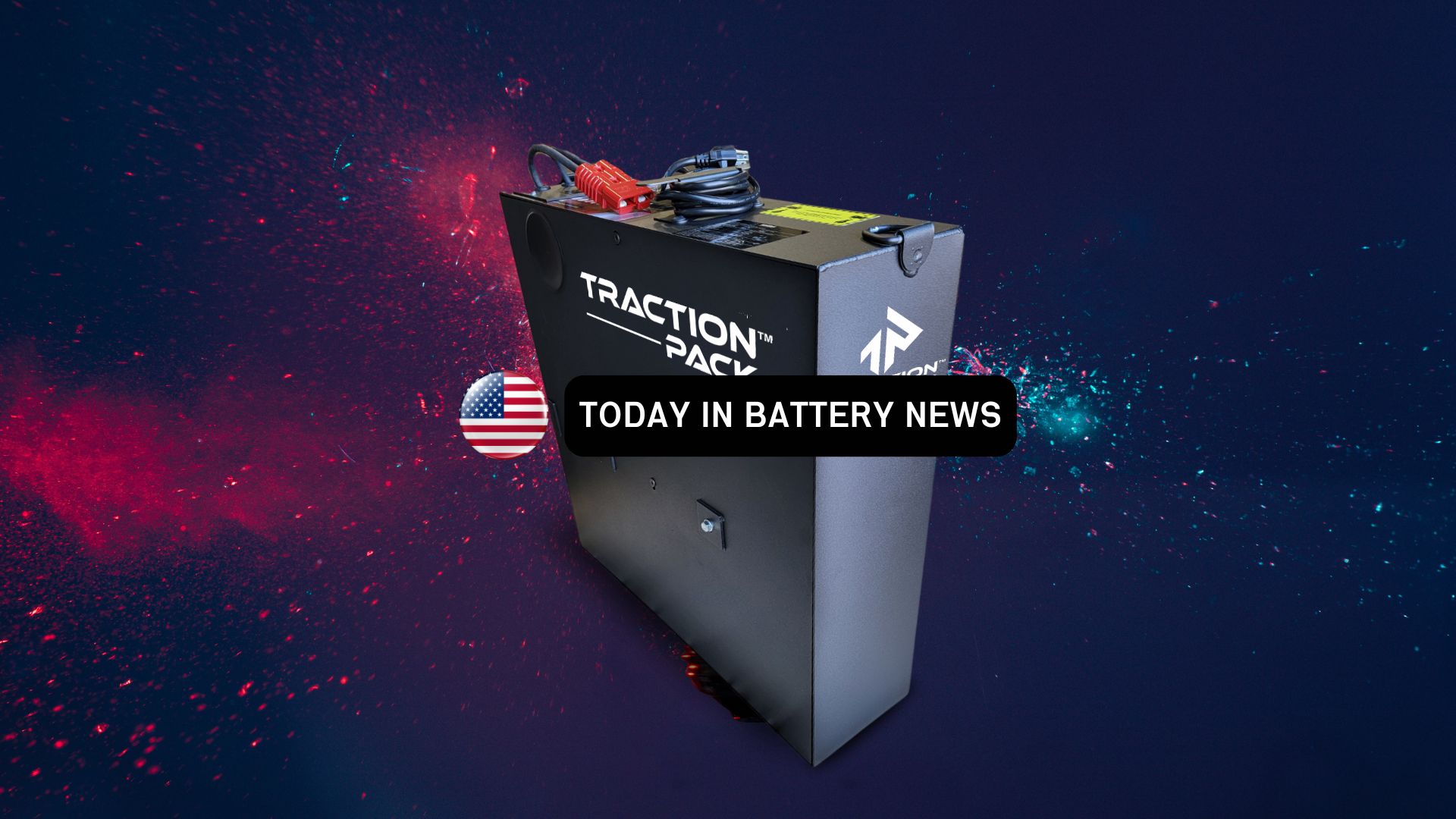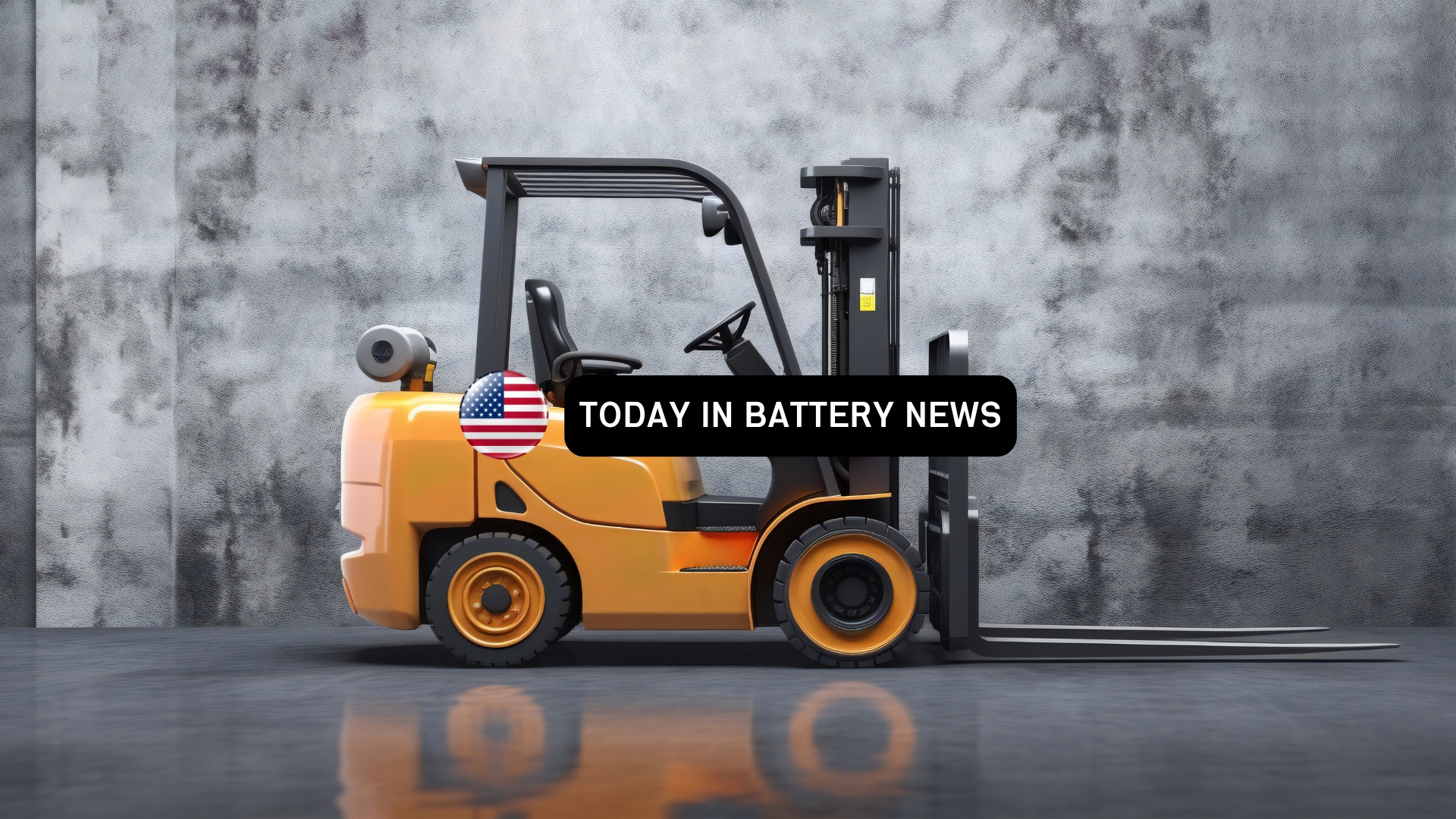NEWS
Upgrading to Lithium Batteries

The Real ROI of Upgrading to Lithium Batteries in Industrial Equipment
How Smart Fleets Are Saving More Than Just Time
Switching to lithium batteries isn’t just about performance—it’s a strategic investment that pays off over time. From reduced maintenance costs to increased uptime, the long-term ROI is turning heads across the material handling industry.
The rapid evolution of industrial operations has put pressure on procurement managers, fleet departments, and material handling professionals to adopt solutions that are efficient, cost-effective, and sustainable. Upgrading from traditional power sources to lithium batteries offers significant benefits, making it a winning strategy for smart fleets that are looking to optimize operations and maximize returns.
Benefits That Go Beyond the Surface
Lithium battery technology has risen to prominence for its array of advantages. But what truly sets it apart is its long-term impact on operational costs and efficiency. Here’s what makes lithium batteries a worthwhile investment for industrial equipment:
Lower Maintenance Costs
Traditional lead-acid batteries require ongoing maintenance, which consumes both time and resources. Checking water levels, cleaning terminals, and performing equalization charges are routine yet labor-intensive tasks. Lithium-ion batteries, in contrast, are virtually maintenance-free—saving your technicians hundreds of hours annually. Less maintenance also means fewer costly, time-consuming disruptions to your operations.
Key Insight: Over the lifespan of your equipment, switching to lithium can cut maintenance-related costs by up to 25%.
Extended Lifespan
Lithium batteries provide up to 2-3 times the cycle life of lead-acid batteries. This means reduced battery replacements over time. With a lifespan of 5-10 years depending on usage patterns, lithium batteries significantly outlast traditional ones, delivering long-term value for businesses aiming to boost operational efficiency.
Enhanced Uptime and Productivity
For procurement managers and fleets, downtime is the ultimate enemy. Lead-acid batteries often require lengthy charging times, followed by cool-down periods. Lithium batteries, conversely, charge fast and are ready to go almost immediately. Additionally, they support opportunity charging—allowing you to top up between shifts without risking battery health. With more uptime, your equipment stays productive when you need it most.
Real-World Example: A forklift fleet upgraded to lithium batteries reported a 15% boost in daily operational hours thanks to drastically reduced charging times.
Energy Efficiency and Cost Savings
Lithium-ion batteries are up to 30% more energy-efficient than traditional alternatives. They deliver consistent power output across all states of charge, ensuring that equipment runs at optimal capacity until the battery is fully drained. This efficiency translates directly into energy cost savings and better operational predictability for fleet managers.
Improved Safety Features
Safety is paramount in any material handling or industrial setting. Lithium batteries come equipped with built-in safety management systems that monitor performance and prevent issues like overheating, overcharging, or deep discharging. These features significantly reduce risks, giving fleet departments peace of mind while enhancing workplace safety.
Bonus Benefit: Lithium batteries help companies achieve their sustainability goals. Their longer lifespan reduces waste, and their energy-efficient design aligns with carbon reduction initiatives—helping your business meet environmental compliance standards.
ROI Breakdown of Lithium Batteries
To fully appreciate the ROI of lithium batteries, it helps to break it down across three primary dimensions:
Initial Cost
While lithium batteries carry a higher upfront cost than lead-acid batteries, this investment is balanced by their operational efficiency, extended lifespan, and reduced maintenance needs.
Lifecycle Savings
Lower maintenance, fewer replacements, and increased productivity deliver significant savings over the life of the battery. Fleets using lithium batteries report up to 30% savings in total costs when compared to traditional power sources.
Long-Term Value
Fleets that invest in lithium technology position themselves for long-term success. By enhancing uptime and reducing costs, you’ll not only boost your bottom line but also gain a competitive edge in your industry.
Why Smart Fleets Are Making the Switch
Procurement managers are increasingly recognizing that sticking with aging power solutions could limit growth and profitability. Fleet efficiency, operational agility, and cost savings aren’t optional in today’s competitive market—they’re essential. By upgrading to lithium batteries, organizations can keep pace with industry demands while improving their bottom line.
What’s more, many businesses are pivoting to lithium technology to prepare for a future where environmental regulations will likely mandate the use of sustainable power sources. Switching now puts you ahead of the curve, aligning your fleet with forward-thinking operational standards.
Closing the Gap with Expert Support
At Harris Battery, we understand that transitioning to lithium technology is as much about strategy as it is about adoption. With over 46 years of expertise in the industrial battery market, we’re here to help you make informed decisions tailored to your unique business challenges.
Take the leap toward efficiency, cost savings, and sustainability—because upgrading your equipment’s power source isn’t just an investment. Call Today 1-800-367-7670








